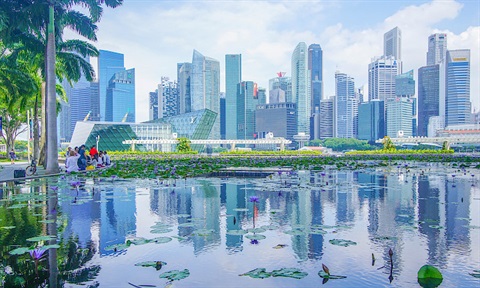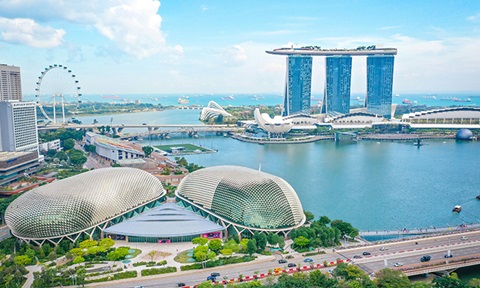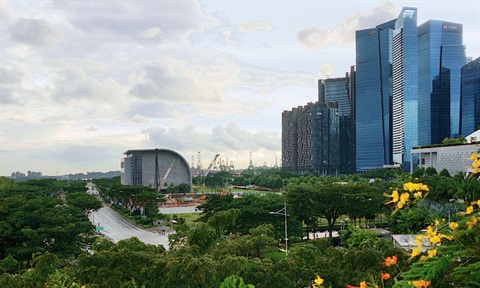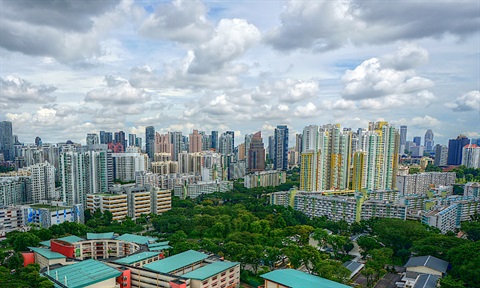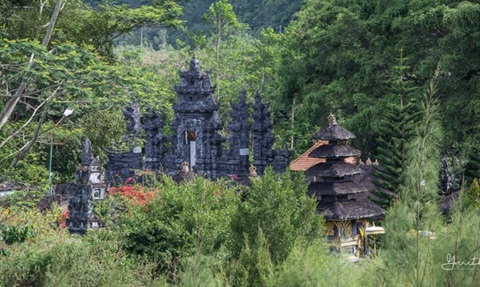Sustainability Education
Education is the key enabler of creating a sustainable world for future generations. At NTU, we seek to incorporate sustainability education for students at different stages of their learning journey, through relevant courses or programmes, to provide them with the foundation and practical tools for understanding the concepts of sustainability and applying them to solve real world problems.
Undergraduate Programmes
Since 2021, we have introduced a sustainability course in our common interdisciplinary core curriculum for all undergraduates. This course aims to develop students with the critical skills to collaborate across disciplines to systematically analyze major sustainability challenges from the perspectives of society, economy, and the environment. Students will learn to address sustainability issues from different viewpoints and at different scales. They will then use these skills to discuss and propose solutions for sustainability challenges facing Singapore and the world.
- Bachelor of Engineering in Environmental Engineering
- Bachelor of Engineering in Bioengineering
- Bachelor of Engineering in Chemical and Biomolecular Engineering
- Bachelor of Science in Environmental Earth Systems Science with three specialization options (Geosciences, Ecology, Society)
- Bachelor of Science in Environmental Earth Systems Science and Public Policy and Global Affairs
- Bachelor of Science in Chemistry and Biological Chemistry with Second Major in Environmental Science
- Bachelor of Science in Biological Sciences
- Bachelor of Science in Physics & Energy Studies and Education
- Bachelor of Arts in Geography
- Second Major in Sustainability
- Second Major in Food Science and Technology (Open to Bioengineering, Chemical and Biomolecular Engineering, Chemistry and Biological Chemistry, Biological Sciences)
- Second Major in Society and Urban Systems (Open to Civil Engineering, Electrical & Electronic Engineering, Environmental Engineering, and Mechanical Engineering)
- Minor in Environmental Sustainability
- Minor in Sustainable Urban Planning
- Minor in Environmental Management
- Minor in Environmental Humanities
- Minor in Science, Technology and Society
- Minor in Science of Learning
- Minor in Chemistry and Biological Chemistry
Postgraduate Programmes
NTU is pioneering a new push in PhD education that will tear down barriers and drive research into areas that need a multi-disciplinary approach. In keeping with global trends and needs, students at the Interdisciplinary Graduate Programme at NTU will concentrate on two or more disciplines, instead of one. Today, fresh thinking is urgently needed to mitigate many global challenges, not least in environmental sustainability, the creation of viable alternative energy solutions, and many other wide-ranging and complex issues.
Master of Science in Maritime Studies
Get the knowledge and tools to elevate yourself from local business management to global settings within the maritime profession.
The Maritime and Port Authority of Singapore (MPA) and the shipping industry have identified that the shipping practice and business in Singapore should be elevated in order to enter into the regional and global arenas.
This is a strategic development that would uplift the local business practice and knowledge to a higher echelon in the international shipping scene, associated with business management, international shipping finance, chartering, and other related issues.
This MSc programme is developed to fill the gap and provide post-graduate level and high-value education for professionals in maritime and related business; elevating them from local business management to one of the international and global business settings.
The foremost intention is to provide young graduates and middle-management executives working in maritime related areas an avenue for higher education. The programme will also be suitable for graduates who wish to be involved in the maritime profession. The education would provide them with necessary knowledge and tools to form the next generation of shipping executives.
This programme has been presented the Excellence in Training Development award at the Singapore International Maritime Awards (IMA) 2009. NTU is honored in recognition for its outstanding contribution to Singapore’s maritime education landscape.
Professional Recognition
Graduates with the MSc in Maritime Studies are granted exemption from the following subjects of the Institute of Chartered Shipbrokers (ICS):
- Introduction to Shipping
- Economics of Sea Transport & International Trade
- Marine Insurance (Only if Marine Insurance Elective is taken)
Visit the ICS’s website here for more information.
- Have a good Bachelor degree in Shipping, Business or other related disciplines or
- Hold a Certificate of Competency 1 (CoC 1)
- TOEFL/IELTS is required for applicants whose Bachelor programme is not conducted in English. Test date must be within 2 years or less from the date of application. The minimum score required is as follows:
- TOEFL (Paper-based): 600
- TOEFL (Computer-based): 250
- TEOFL (Internet-based): 85
- IELTS (Academic): 6.0
- GRE/GMAT score is not required for admission.
Intake Period
- There is only one intake yearly - the August intake.
- The application portal opens from November to January every year. Candidates may apply via the "Apply Now" button at the top right of this page when the portal opens.
Application Fee
- Effective Academic Year 2024 intake onwards, the application has been adjusted to S$50,
inclusive of GST.
Programme Structure
- The programme is available in both full-time study and part-time study.
- Students must complete 30 AUs (10 Courses), of which 18 AUs (12AUs compulsory + 6 AUs electives) must be from the Maritime Studies curriculum.
- Eligible students may choose to select Coursework + Dissertation study track from their 2nd semester onwards (eligibility terms apply)
- Note that a dissertation project is in lieu of 2 courses.
Lesson & Examination Schedule
- There are two semesters each year. You may refer to the academic calendar here for more information.
- Classes are conducted on weekday evenings between 6.30 PM – 9.30 PM, unless otherwise informed by your lecturer or indicated in the timetable system. This applies for both full-time and part-time students.
- Note that examinations are generally scheduled on weekday mornings or afternoons, unless otherwise indicated in the timetable system.
Candidature Period
| Courses allowed per semester | Normal / Minimum Candidature Period | Maximum Candidature Period | |
| Full-time Study | Up to 5 courses (15 AUs) | 1 year (2 semesters) | 3 years (6 semesters) |
| Part-time Study | Up to 3 courses (9 AUs) | 2 years (4 semesters) | 4 years (8 semesters) |
Core Courses (Compulsory)
| Course Code | Course Title | AUs | Pre-requisite |
|---|---|---|---|
| MT6101 | Project Management | 3 | |
| MT6102 | Maritime Economics | 3 | |
| MT6201 | Shipping Management I | 3 | |
| MT6202 | Shipping Management II | 3 | MT6201 |
Electives
| Course Code | Course Title | AUs | Pre-requisite |
|---|---|---|---|
| MT6103 | Strategic Planning | 3 | |
| MT6104 | Cross Cultural Management | 3 | |
| MT6105 | International Business Financing & Insurance | 3 | |
| MT6204 | Ship Operations, Brokering and Chartering | 3 | |
| MT6301 | Maritime Logistics | 3 | |
| MT6302 | Port Management | 3 | |
| MT6401 | Environmental Shipping | 3 |
Please note that course offerings are subject to review and changes each academic year.
Course Content
MT6101 Project Management (3 AUs)
This course addresses the considerable changes seen in recent years in areas where project work is used. The planning and organization of projects as well as their management are discussed.
MT6102 Maritime Economics (3 AUs)
This course provides students with a detailed understanding of maritime economic fundamentals. The topics include main concepts and tools in micro- and macro-economics and their application to maritime transport, shipping markets, shipping demand and supply, shipping costs and freight rate mechanism, economics for shipping strategy, future shipping market, tramp shipping, liner shipping, ship financing, economics of maritime regulations, and the relationship between maritime transport and national economy.
MT6201 Shipping Management 1 (3 AUs)
This course introduces students to the role of maritime transport in international trade and to the specific tasks that face the executives of shipping companies and other organizations in the maritime industry.
MT6202 Shipping Management 2 (3 AUs)
Pre-requisite: MT6201 Shipping Management 1
This course provides student an understanding of commercial practices and the legislative and contractual framework of international shipping.
Electives (Not all Electives will be offered each semester)
MT6103 Strategic Planning (3 AUs)
The essence of corporate strategy is the creation of sustainable competitive advantage, i.e. creating products and services that the customers perceive as valuable and unique. In this course, students will get acquainted with several models that are useful in the development of sustainable competitive advantage.
MT6104 Cross Cultural Management (3 AUs)
This module increases participants' cultural awareness and skills for a global business like shipping. It covers strategizing, management (including human resources), communications and negotiations, with focus on the cultural dimension, which involves such factors as core beliefs and values which characterize both national and business cultures.
MT6105 International Business Financing & Insurance (3 AUs)
This course aims to examine the challenges to the manager’s role associated with adaptive leadership and thoroughly prepares students for the complicated yet fascinating discipline of international and global management.
MT6204 Ship Operations, Brokering and Chartering (3 AUs)
Ship Operations: Stowage plans, bunkering, crewing, maintenance, scheduling and fuel. Harbor infrastructure. Marine environment protection. Shipping safety. Legal aspects of chartering and purchase of ships. Roles of the broker and liner agent. Legislation and practice. Chartering: Operation of freight markets. Multiple charter parties. Special charter forms - Vegoil, Chemicals, Supply Ships, Towage.
MT6301 Maritime Logistics (3 AUs)
This course examines the strategic role of shipping in global supply chains. Case studies are used to improve the students strategic logistics skills.
MT6302 Port Management (3 AUs)
This module aims to develop a thorough grasp of different aspects of port activities by providing detailed understanding of the principles and practices of port management within the framework of overall transportation systems.
MT6401 Environmental Shipping (3 AUs)
The objective of this course is to introduce students to the various causes of pollution to the marine and atmospheric environments due to shipping related activities. Environmental issues such as ship waste, oil pollution, anti-fouling paints, ship breaking
activities, ship litter (including plastics), ballast water management and ship emissions are addressed.
Tuition Fees
| Full-time | Part-time | |
| Tuition fee for AY2024-2025 (based on minimum candidature) | S$ 45,107.20 | |
| Tuition fee per semester | S$ 22,553.60 | S$ 11,276.80 |
Important things to note:
- The above fees are based on the shortest candidature period. Additional fees will apply for each semester extended beyond the minimum/normal candidature
(i.e. if you are enrolling as a full-time student and intend to complete your programme in 2 years instead of the normal period of 1 year, you will be billed S$ 22,553.60 per semester from your 1st to 4th term).
- Tuition fee is payable each semester regardless of the number of courses registered that term. This is applicable even if the student did not register any course that semester, unless the student has been approved for Leave of Absence (LOA) before the 2nd teaching week of that term.
- Students who apply LOA or withdraw their candidature after the second teaching week of the semester will
- Fees listed are inclusive of the prevailing Goods and Services Tax (GST).
- The University reserves the right to revise its fees every year without notice. For more information on other applicable fees, click here.
Financial Aid
- All Singaporeans and Permanent Residents:
From the academic year starting in 2024, Singaporeans and permanent residents who enrol in self-funded master’s by coursework programmes at NTU will enjoy a $5,000 subsidy, with those in need of financial aid will receive up to $10,000. - All NTU Alumni:
All NTU alumni will receive an additional 10 per cent tuition fee rebate. These initiatives, announced by NTU President Prof Ho Teck Hua at the NTU Alumni Homecoming event, are meant to promote lifelong learning and make postgraduate education more accessible for all. - Singapore Citizens or Singapore Permanent Residents enrolled in the MSc (Maritime Studies) programme may be eligible for the Maritime Cluster Fund (MCF), a co-funding by the Maritime & Port Authority of Singapore (MPA). Visit MPA’s website here for more information on MCF (under “Certifiable Courses”).
- Science
- Sustainability
- Full-time
- Master (Coursework)
- AY2021/2022
- School of Civil and Environmental Engineering
- IGP-APRU-Global Sustainability, Waste & the City
- IGP-Earth Observatory of Singapore (EOS)
- IGP-Singapore Centre for Environmental Life Sciences Engineering (SCELSE)
- IGP-Energy Research Institute @ NTU (ERI@N)
- IGP-Nanyang Environment & Water Research Institute (NEWRI)
- IGP-NTU Institute for Health Technologies (HealthTech NTU)
- GIS and Geospatial Learning in Sustainability
Sustainability has become a key theme in higher education globally. It is also by now a core component of the revised MAHE programme. The spatial thinking tools and applications that you will learn in GIS will help you to better comprehend sustainability issues as well as devise solutions for such problems. This course will enable you to apply GIS vis-a-vis cross-disciplinary perspectives in the Humanities with respect to the Southeast Asian context.
- Global Cities
This course aims to introduce the urban ways of life and appreciate the emergence of global cities beyond the Global North. The course will also include various empirical and grounded experiences of global cities around the world, especially on issues related to urban liveability, sustainability, water, housing and other urban infrastructure issues.
- Environmental Planning and Management
This course examines selected environmental challenges in urban areas and explores planning solutions and management options to avoid or mitigate such problems. Multidisciplinary, integrated solutions that follow principles of sustainability are emphasized.
- Discourses in Sustainability
The environmental and social impacts of global climate change been increasingly emphasised. Accordingly, there is a need to equip learners with the history of sustainability studies, alongside current debates and possible future trajectories of this discipline. This knowledge will help learners better understand situations related to climate change and also opportunities in fostering environmental sustainability.
- Field Inquiry in Sustainability
Fieldwork strengthens our classroom concepts and gives the opportunity to understand the world through inquiry- based learning. This course will equip learners with both the qualitative and quantitative skills to collect and interpret data in ways that can help to inform environmental solutions for a more sustainable future.
- Second Major in Sustainability
- Aspiring students with a passion for Sport Science & Management (SSM) now can complement their degree by undertaking a Second Major in Sustainability. This Second Major in Sustainability within the SSM degree programme equips students with the knowledge and skills to address pressing environmental and social challenges faced by the sports industry.
- MBA (Sustainability & Innovation) Track
- Master by Research in Earth and Environmental Science
- Doctor of Philosophy in Earth and Environmental Science
- Joint NTU-TUM Master of Science in Green Electronics
- Master of Engineering (Research) in Civil and Environmental Engineering
- Doctor of Philosophy in Civil and Environmental Engineering
- Doctor of Philosophy in Biological Sciences
- Master of Science in Civil Engineering
- Master of Science in Maritime Studies
- Master of Science in Smart Manufacturing
- Master of Science in Power Engineering
- Master of Science in Materials Science and Engineering
- MBA (Strategy & Innovation)
- Master of Science in Finance
Continuing Education
NTU Continuing Education offers a wide range of programmes and courses for working professionals that are curated from various disciplines and conducted via different learning platforms. Aligning with the Government’s concerted effort to build sustainability as a way of work, play and life, that is the Green economy, specialised topics such as Sustainability Design, Energy Management, Environmental Management and etc. are created and delivered as either short courses or semester long courses, credit-bearing and stackable towards the relevant certificate(s) such as Specialist, Graduate and/or FlexiMasters certificate.














/enri-thumbnails/careeropportunities1f0caf1c-a12d-479c-be7c-3c04e085c617.tmb-mega-menu.jpg?Culture=en&sfvrsn=d7261e3b_1)

/cradle-thumbnails/research-capabilities1516d0ba63aa44f0b4ee77a8c05263b2.tmb-mega-menu.jpg?Culture=en&sfvrsn=1bc94f8_1)

7e6fdc03-9018-4d08-9a98-8a21acbc37ba.tmb-mega-menu.jpg?Culture=en&sfvrsn=7deaf618_1)


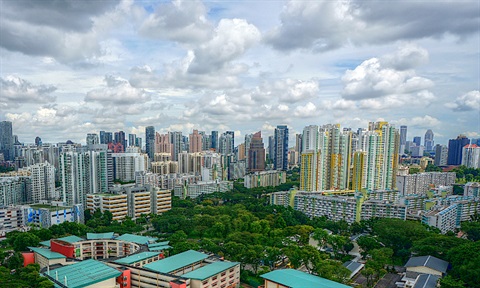





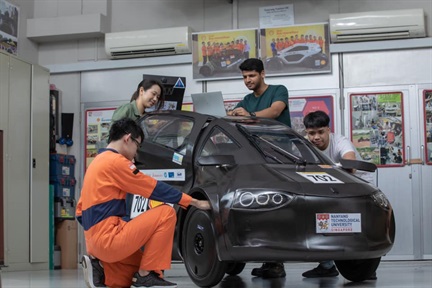

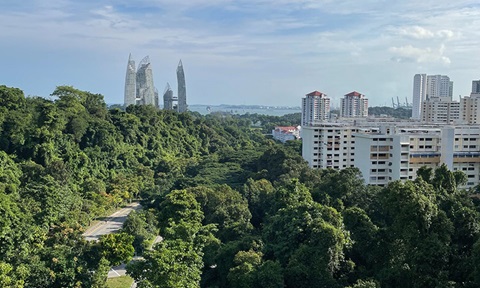
3b155ab0-477f-45d6-9972-7465366ee023.tmb-listing.jpg?Culture=en&sfvrsn=7e8fb3bc_1)
